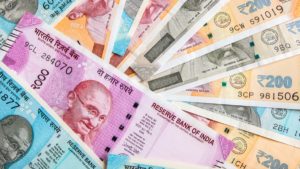India has one of the fastest-growing online gambling industries in the world, with the market value estimated to be worth over 60 billion Indian Rupees at the end of last year. This figure is always rising and is projected to push beyond 250 billion Rupees in the next ten years.
Unsurprisingly, international gambling companies have identified the potential in the Indian market, and have quickly moved in to set up shop in the country. LeoVegas, Royal Panda and Betway are among the biggest global brands to have established themselves in India, offering the locals a host of quality online casino games.
Indians have always loved their gambling, and now, with very easy access to online sports betting and casino sites, gambling is becoming even more widespread in the country. Real money gambling is growing at a rate of 20% per year, while an estimated 80% of Indians gamble at least once a year on sports betting, casino or table games.
While the Indian gambling market is already generating tremendous revenue, the general feeling is that it has not yet reached its full potential. This is partly because the industry is largely unregulated and hampered by several legal restrictions. Some Indians still view gambling as immoral and against religious beliefs, while some banks remain reluctant to carry out gambling transactions.
 Vague Gambling Laws
Vague Gambling Laws
The laws governing gambling in India are very vague and mostly outdated. The Public Gaming Act of 1867 prohibits the possession and running of gaming houses, but the Indian constitution, upon enactment in 1950, gave individual states the power to determine whether gambling would be legal in their regions or not. Gambling remains illegal in most Indian states, with the very few exceptions being Goa, Daman, and Sikkim.
The legality of online gambling is even more unclear. Online gambling is relatively new in India and is hardly mentioned in the federal laws. Indians are not allowed to operate gambling sites, but offshore companies are permitted to provide sports betting and online casino services to Indian players, as long as they accept the Indian Rupees. Consequently, foreign operators have rushed into the country to sow into the very fruitful market.
According to Mycasino.in, there are a number of reputable foreign online casinos available to Indian players. These sites are safe, secure and transparent, and are licensed by some of the best global regulatory bodies. Unfortunately, there will always be bad eggs. Not all of the international sites are trustworthy, leaving players at risk of falling into the wrong hands.
Government action needed to regulate gambling activities
It is therefore important for the government to step in and protect players from malpractices like under-age gambling, match-fixing and non-payment of winnings. There have been cases of successful gamblers being denied winnings due to some bogus terms and conditions.
Given the rapid rise of online gambling in India, and the massive revenue being generated by these companies, it is very surprising that the government has not taken charge and put up laws to regulate the activities of sports betting and online casino companies in the country.
Legalizing online gambling in India will generate even more money for the economy
They are losing some serious money from taxation and licensing, while the economy is missing out on money that would have been generated by operators who aren’t able to start up because of the legal restrictions in the country. This will surely be fixed sooner rather than later.
Apart from generating money for the government and the economy, and protecting players, legalizing and regulating online gambling also create employment opportunities for Indians. As more local and international companies set up legally in the country, more jobs will be created.
Gambling has its good sides and bad sides
The potential gains of legalizing online gambling in India are great, but we must not overlook the disadvantages. Gambling can get very addictive, and result in loss of money, social vices, and depression. The government can reduce this risk by working hand-in-hand with the gambling companies to educate players on responsible gambling and encourage them to have spending limits.
With technology set to keep improving, leading to more mobile phones, more accessible internet connections, and better payment systems, the online gambling industry in India will continue to accelerate at a very rapid pace. This has good sides, as well as bad sides. The onus is on the government to make laws that magnify the good sides and as much as possible, reduce the bad sides.







